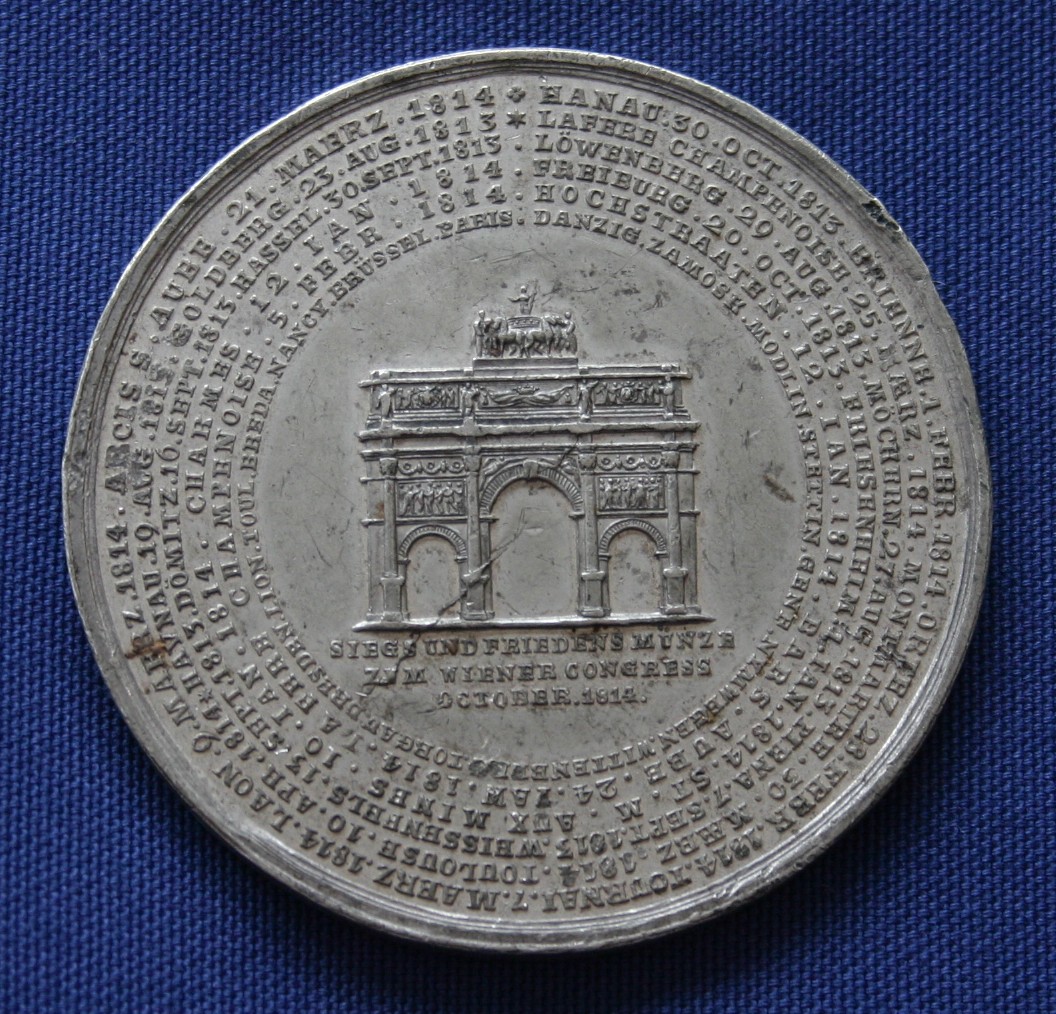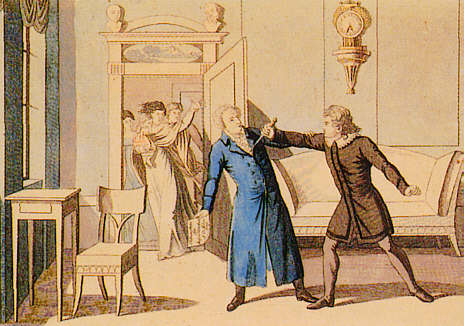|
Wilhelm Henschel
Wilhelm Henschel (March 15, 1785 – June 27, 1865)�Henschel, Wilhelm” In: ''Berliner Klassik Datenbank''. Berlin-Brandenburg Academy of Sciences and Humanities, Berlin-Brandenburgische Akademie der Wissenschaften. Retrieved 2016-03-26. was a German-Jewish artist especially known for his drawings, and as a member of the artistic team the Brothers Henschel (Gebrüder Henschel), together with his three brothers, Friedrich (1781-1837), August (1782-1828) und Moritz (1785-1862). Active in Berlin and in their hometown, Breslau (Wrocław), the brothers were known for drawings, pastels, engravings, miniature paintings, and lithography, lithographs. Biography Wilhelm and his brothers were born of a Jewish family, in Trachenberg (Żmigród), and grew up in Breslau, then in Prussian Silesia. Their father, Hirsch Henschel, was a merchant; their uncle (Hirsch's older brother) Elias Henschel (1755-1839) was a prominent physician.Kirschstein, Sally (1918). �Die Gebrüder Henschel” In: K ... [...More Info...] [...Related Items...] OR: [Wikipedia] [Google] [Baidu] |
Berlin-Brandenburg Academy Of Sciences And Humanities
The Berlin-Brandenburg Academy of Sciences and Humanities (), abbreviated BBAW, is the official academic society for the natural sciences and humanities for the German states of Berlin and Brandenburg. Housed in three locations in and around Berlin, Germany, the BBAW is the largest non-university humanities research institute in the region.BBAW Introduction retrieved 06-21-2012. The BBAW was constituted in 1992 by formal treaty between the governments of Berlin and Brandenburg on the basis of several older academies, including the historic from 1700 and |
Johann Wolfgang Von Goethe
Johann Wolfgang (von) Goethe (28 August 1749 – 22 March 1832) was a German polymath who is widely regarded as the most influential writer in the German language. His work has had a wide-ranging influence on Western literature, literary, Political philosophy#European Enlightenment, political, and Western philosophy, philosophical thought in the Western world from the late 18th century to the present.. A poet, playwright, novelist, scientist, statesman, theatre-director, and critic, Johann Wolfgang von Goethe bibliography, his works include plays, poetry and aesthetic criticism, as well as treatises on botany, anatomy, and colour. Goethe took up residence in Weimar in 1775 following the success of his first novel, ''The Sorrows of Young Werther'' (1774), and joined a thriving intellectual and cultural environment under the patronage of Duchess Anna Amalia of Brunswick-Wolfenbüttel, Duchess Anna Amalia that formed the basis of Weimar Classicism. He was ennobled by Karl August, G ... [...More Info...] [...Related Items...] OR: [Wikipedia] [Google] [Baidu] |
1865 Deaths
Events January * January 4 – The New York Stock Exchange opens its first permanent headquarters at Broad Street (Manhattan), 10-12 Broad near Wall Street, in New York City. * January 13 – American Civil War: Second Battle of Fort Fisher – Union forces launch a major amphibious assault against the last seaport held by the Confederate States of America, Confederates, Fort Fisher, North Carolina. * January 15 – American Civil War: Union forces capture Fort Fisher. * January 31 ** The Thirteenth Amendment to the United States Constitution (conditional prohibition of slavery and involuntary servitude) passes narrowly, in the House of Representatives. ** American Civil War: Confederate General Robert E. Lee becomes general-in-chief. February * February 3 – American Civil War: Hampton Roads Conference: Union and Confederate leaders discuss peace terms. * February 6 – The Municipalities of Finland#History, municipal administration of Finland i ... [...More Info...] [...Related Items...] OR: [Wikipedia] [Google] [Baidu] |
1785 Births
Events January–March * January 1 ** The Burmese Konbaung Dynasty annexes the Mrauk U Kingdom of Arakan. ** The first issue of the ''Daily Universal Register'', later known as ''The Times'', is published in London. * January 7 – Frenchman Jean-Pierre Blanchard and American John Jeffries travel from Dover, England to Calais, France in a hydrogen gas balloon, becoming the first to cross the English Channel by air. * January 11 – Richard Henry Lee is elected as President of the U.S. Congress of the Confederation.''Harper's Encyclopaedia of United States History from 458 A. D. to 1909'', ed. by Benson John Lossing and, Woodrow Wilson (Harper & Brothers, 1910) p167 * January 20 – Battle of Rạch Gầm-XoĂ i MĂşt: Invading Siamese forces, attempting to exploit the political chaos in Vietnam, are ambushed and annihilated at the Mekong River by the Tây Sơn. * January 27 – The University of Georgia in the United States is chartered by the Georgia ... [...More Info...] [...Related Items...] OR: [Wikipedia] [Google] [Baidu] |
YIVO
YIVO (, , short for ) is an organization that preserves, studies, and teaches the cultural history of Jewish life throughout Eastern Europe, Germany, and Russia as well as orthography, lexicography, and other studies related to Yiddish. Established in 1925 in Wilno in the Second Polish Republic (now Vilnius, Lithuania) as the Yiddish Scientific Institute (, ; the word ''yidisher'' means both "Yiddish" and "Jewish"). Its English name became Institute for Jewish Research after its relocation to New York City, but it is still known mainly by its Yiddish acronym. YIVO is now a partner of the Center for Jewish History, and serves as the '' de facto'' recognized language regulator of the Yiddish language in the secular world. The YIVO system is commonly taught in universities and known as () and sometimes "YIVO Yiddish" (). Activities YIVO preserves manuscripts, rare books, and diaries, and other Yiddish sources. The YIVO Library in New York contains over 385,000 volumes datin ... [...More Info...] [...Related Items...] OR: [Wikipedia] [Google] [Baidu] |
Bavarian State Library
The Bavarian State Library (, abbreviated BSB, called ''Bibliotheca Regia Monacensis'' before 1919) in Munich is the central " Landesbibliothek", i. e. the state library of the Free State of Bavaria, the biggest universal and research library in Germany and one of Europe's most important universal libraries. With its collections currently comprising around 10.89 million books (as of 2019), it ranks among the leading research libraries worldwide. The furthermore is Europe's second-largest journals library (after the British Library). Furthermore, its historical holdings encompass one of the most important manuscript collections of the world, the largest collection of incunabula worldwide, as well as numerous further important special collections. Its collection of historical prints before 1850 totals almost one million units. The legal deposit law, still applicable today, has been in force since 1663 and requires that two copies of every printed work published in Bavaria ... [...More Info...] [...Related Items...] OR: [Wikipedia] [Google] [Baidu] |
German Campaign Of 1813
The German campaign () was fought in 1813. Members of the Sixth Coalition, including the German states of Austria and Prussia, plus Russia and Sweden, fought a series of battles in Germany against the French Emperor Napoleon, his marshals, and the armies of the Confederation of the Rhine – an alliance of most of the other German states –, which ended the domination of the First French Empire. After the devastating defeat of Napoleon's ''Grande Armée'' in the Russian campaign of 1812, Ludwig Yorck von Wartenburg, Johann Yorck – the general in command of the ''Grande Armée'''s German auxiliaries (') – declared a ceasefire with the Russians on 30 December 1812 via the Convention of Tauroggen. This was the decisive factor in the outbreak of the German campaign the following year. The spring campaign between France and the Sixth Coalition ended inconclusively with a summer truce (Truce of Pläswitz). Via the Trachenberg Plan, developed during a period of ceasefire in the sum ... [...More Info...] [...Related Items...] OR: [Wikipedia] [Google] [Baidu] |
Louise Of Mecklenburg-Strelitz
Louise of Mecklenburg-Strelitz (Luise Auguste Wilhelmine Amalie; 10 March 1776 – 19 July 1810) was Queen of Prussia as the wife of King Frederick William III. The couple's happy, though short-lived, marriage produced nine children, including the future monarchs Frederick William IV of Prussia and William I, German Emperor. Her legacy became cemented after her extraordinary 1807 meeting with French Emperor Napoleon I at Tilsit – she met with him to plead unsuccessfully for favorable terms after Prussia's disastrous losses in the War of the Fourth Coalition. She was already well loved by her subjects, but her meeting with Napoleon led Louise to become revered as "the soul of national virtue". Her early death at the age of thirty-four "preserved her youth in the memory of posterity", and caused Napoleon to reportedly remark that the king "has lost his best minister". The Order of Louise was founded by her grieving husband four years later as a female counterpart to th ... [...More Info...] [...Related Items...] OR: [Wikipedia] [Google] [Baidu] |
Julius Von Voss
Julius von Voss, also Julius von Voß (24 August 1768, Brandenburg an der Havel, Prussia – 1 November 1832 Berlin) was a German writer. Work His rapidity of literary production was almost without a parallel. He published about 160 works (plays, novels, and short stories) and a large number of works remained unpublished. His best novel is ''Die Schildbürger'' (1823), a comical novel about Schildbürger, residents of Schilda, a fictional German town of fools (the text is available at Google Books ). He wrote many , |
August Von Kotzebue
August Friedrich Ferdinand von Kotzebue (, ; – ) was a German playwright, who had also worked as a Russian diplomat. In 1817, one of Kotzebue's books was burned during the Wartburg festival. He was murdered in 1819 by Karl Ludwig Sand, a militant member of the '' Burschenschaften''. This murder gave Metternich the pretext to issue the Carlsbad Decrees of 1819, which dissolved the ''Burschenschaften'', cracked down on the liberal press, and seriously restricted academic freedom in the states of the German Confederation. Life Kotzebue was born on May 3, 1761 in Weimar, Saxe-Weimar, to the respected merchant Kotzebue family and was educated at Wilhelm-Ernst- Gymnasium in Weimar, where his uncle, the writer and critic Johann Karl August Musäus, was among his teachers. In 1776 the young Kotzebue acted alongside Goethe in the latter's play ''Die Geschwister'' when it premiered in Weimar. In 1777, aged sixteen, he enrolled at the University of Jena to study legal science. He c ... [...More Info...] [...Related Items...] OR: [Wikipedia] [Google] [Baidu] |
Wilhelm Von Humboldt
Friedrich Wilhelm Christian Karl Ferdinand von Humboldt (22 June 1767 – 8 April 1835) was a German philosopher, linguist, government functionary, diplomat, and founder of the Humboldt University of Berlin. In 1949, the university was named after him and his younger brother, Alexander von Humboldt, a Natural history, naturalist. He was a linguist who made contributions to the philosophy of language, ethnolinguistics, and to the Learning theory (education), theory and practice of education. He made a major contribution to the development of liberalism by envisioning education as a means of potential, realizing individual possibility rather than a way of indoctrination, drilling traditional ideas into youth to suit them for an already established occupation or social role. In particular, he was the architect of the Humboldtian education ideal, which was used from the beginning in Prussian education system, Prussia as a model for its system of public education, as well as in the Un ... [...More Info...] [...Related Items...] OR: [Wikipedia] [Google] [Baidu] |
Johann Gottlieb Fichte
Johann Gottlieb Fichte (; ; 19 May 1762 – 29 January 1814) was a German philosopher who became a founding figure of the philosophical movement known as German idealism, which developed from the theoretical and ethical writings of Immanuel Kant. Recently, philosophers and scholars have begun to appreciate Fichte as an important philosopher in his own right due to his original insights into the nature of self-consciousness or self-awareness. Fichte was also the originator of '' thesis–antithesis–synthesis'',"Review of '' Aenesidemus''""Rezension des Aenesidemus" '' Allgemeine Literatur-Zeitung'', 11–12 February 1794). Trans. Daniel Breazeale. In (See also: ''FTP'', p. 46; Breazeale 1980–81, pp. 545–68; Breazeale and Rockmore 1994, p. 19; Breazeale 2013, pp. 36–37; Waibel, Breazeale, Rockmore 2010, p. 157: "Fichte believes that the I must be grasped as the ''unity'' of synthesis and analysis.") an idea that is often erroneously attributed to Hegel. Like Descartes ... [...More Info...] [...Related Items...] OR: [Wikipedia] [Google] [Baidu] |








